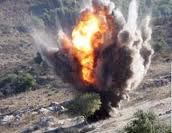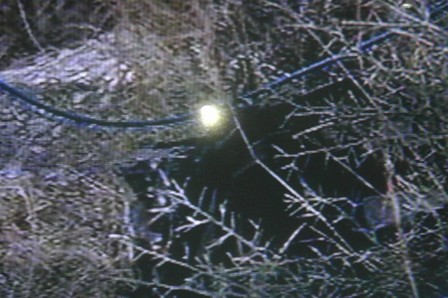The Myth of the US Military Aid to Lebanon

August 10, 2010
On August 4, US State Department spokesman P. J. Crowley said that the firing by Lebanese armed forces on "Israeli" troops near the "Israel"-Lebanon border the previous day, which killed two Lebanese soldiers and one Lebanese journalist as well as one "Israeli" officer and seriously wounded another, was "totally unjustified and unwarranted." Shortly before, "Israeli" Ambassador in Washington, Michel Oren, held talks with US senior officials to demand them a harsh US response.
Some US congressmen warned Lebanon that the US could reassess its aid to the Lebanese Army. "To start shooting as they did -one person killed, one seriously injured- is a very serious move by the Lebanese army," Florida Representative Ron Klein, who sits on the House Foreign Affairs Committee, told The Jerusalem Post."It certainly is going to come up in our conversations in the Congress about the continued support of the Lebanese Army," he said. Klein ignored the three Lebanese victims and the Israeli actions that provoked the incident.
The American "Israel" Public Affairs Committee (AIPAC), the main organization of the Zionist lobby, reportedly circulated a memorandum claiming that the Lebanese Army was cooperating with Hizbullah, and stating that unless this stops, "Washington must reevaluate its relationship with the Beirut government and the Lebanese Armed Forces - the recipient of significant American military aid." A State Department representative declined to respond to a Jerusalem Post question about whether the incident could affect American aid to Lebanon.
According the "Israeli" daily Haaretz, in the past five years, the Lebanese Army has been the second largest recipient of US military assistance per capita after "Israel". A State Department press release from late 2008 noted that between 2006 and 2008, the Lebanese Army received 10 million rounds of ammunition, Humvees, spare parts for attack helicopters, vehicles for its Internal Security Forces "and the same frontline weapons that US military troops are currently using, including assault rifles, automatic grenade launchers, advanced sniper systems, anti-tank weapons and the most modern urban warfare bunker weapons."
Since 2006, the US has provided Lebanon some 500 million dollars in military assistance. Last year, the US approved 100 million dollars in assistance to the Lebanese military. The Obama administration has requested the same levels for 2011, with small increases for anti-terror and military training programs.
However, the border incident of August 3 highlighted the fact that the US Administration does not consider that its military aid should be used to protect Lebanon against its only real enemy: "Israel". "We have no indication that US equipment played any role in this incident earlier this week," Crowley said. "In any US-origin equipment that has been provided to Lebanon, we have very strong end-use monitoring to make sure it is used appropriately."
"Used appropriately" means that US aid must only be used against other Lebanese parties, especially the Resistance. According to Lebanon's As-Safir newspaper, in written testimony to Congress, Obama´s nominee to head the US Central Command, General James Matthis, claimed that the relationship between US Central Command and the Lebanese Army is focused on building the latter´s capabilities "to preserve internal stability". US Assistant Secretary of Defense Alexander Vershbow, who has recently visited Beirut and the South of Lebanon, said that continued US aid and training to the Lebanese Army would allow it to "prevent militias and other nongovernmental organizations" from "undermining the government".
One State Department spokesperson made the quid pro quo clearer: if the Lebanese Army hopes for equipment, even spare parts, it will have to first focus on "using its military to keep Hizbullah in check and to control southern Lebanon and Palestinian refugee camps in order to prevent them from being used as bases to attack "Israel"". This point was underscored by US officials interviewed by International Crisis Group who "implied" that "the Lebanese must be trained and equipped to meet Hizbullah´s, not "Israel´s", challenge." Therefore, US military aid for Lebanon seeks to protect "Israel", the real enemy of Lebanon, and the Lebanese Army should become a mercenary force to implement US and "Israeli" schemes in Lebanon and the Middle East. Significantly, the US has not given the Lebanese Army anti-aircraft, anti-tank or anti-ship missiles that could be used against "Israel".
The second goal of US aid, according to the US Central Command, is to "protect borders", which means to prevent the Resistance from receiving weapons from abroad in order to protect the country against the "Israeli" enemy. However, the Jerusalem Post complained, "the Lebanese Army has taken no actions to seal off that border from weapons transfers to Hizbullah" and has done "nothing while Syria and Iran have been arming Hizbullah´s army with tens of thousands of missiles."
At a White House meeting in December 2009, President Barack Obama asked Lebanese President Michel Sleiman to stop the flow of weapons being allegedly sent to the south of Lebanon "that potentially serve as a threat to "Israel"". He warned that a failure to do so could lead to another invasion by "Israel". Vice President Joe Biden went further, telling Suleiman that "Israel" could invade Lebanon and go all the way to Beirut to destroy Hizbullah´s weapons if the government failed to rein in the organization.
Of course, massive US military aid to "Israel", which includes all kind of weapons, including the most advanced ones in the US arsenal, is something normal and nobody has the right to question it. However, when Syria, Iran or Lebanon acquire any kind of weapons adequate to protect their countries against US or "Israeli" attacks or threats this becomes a universal scandal.
The US aid is not supposed be used to protect Lebanon from "Israeli" spies either. Recently, Los Angeles Times complained that the US-supported Lebanese Internal Security Forces had used US signals equipment to help Hizbullah "ferret out "Israeli" agents." According to the Times, "a strengthening Lebanese government is helping Hizbullah bust alleged spy cells, sometimes using tools and tradecraft acquired from Western nations eager to build up Lebanon´s security forces as a counterweight to the Shiite group." Once again, Hizbullah was the target, not "Israel".
In this way, US and "Israeli" outrage is easy to understand. The Lebanese has not used US weapons to crush Hizbullah but to defend Lebanon and this is an unbearable reality for "Israelis" and pro-Zionist circles in Washington. For Washington and Tel Aviv, the truth is simple: the Lebanese Army is not supposed to protect Lebanon from "Israeli" violations of the Lebanese sovereignty and, thus, it shot at whom did not have to.
More and more Lebanese are now questioning the value of an US aid that only can used in an internal conflict. Agriculture Minister Hussein Al Hajj Hassan has called for preventing the US from controlling the army through its ill-intentioned support, the National News Agency said. He claims that American military and security assistance does not benefit Lebanon.
SUPPORT FOR "ISRAELI" WARS ON LEBANON
Lebanese people also remember that the US role has gone much beyond trying to turn the Lebanese Army into an internally oppressive security force. Washington has been an accessory to all "Israeli" attacks and aggressions against Lebanon. For example, a great portion of the American equipment stored in "Israel" was used for combat in the 2006 July war in Lebanon. Moreover, the US sent "Israel" all kind of weapons and ammunitions during the conflict.
Moreover, Washington politically supported the "Israeli" assault and blocked all efforts for an immediate halt to a war that killed more than 1,300 Lebanese, wounded more than 4,000 and drove 900,000 from their homes. A third of the Lebanese dead were children under the age of 12.
This US stance outraged the Lebanese population. "We did not use to be against the Americans, but now we are. They are against us," said Fatima Haider, a Lebanese who lived in the district of Ein el-Mreiseh in Beirut, to Reuters at that time. Her home was destroyed by US-made "Israeli" bombs. "It is clear America´s support for "Israel" during the 34 days of bombing will not be forgotten," said Fawaz Gerges, a professor at Sarah Lawrence College in New York, to ABC News.
As the Lebanese newspaper Daily Star said: "American complicity in these (Israeli) plans is clear: the Lebanese middle class has witnessed the carnage and destruction of their country with US approval, and the killing of innocent women and children with advanced American weaponry that mutilated their bodies into pieces." Even naïve Lebanese that had believed for a moment that the US Administration could have a sincere interest in promoting the democracy in its country got indignant about American support for the "Israeli" aggression.



